SUMMARY
WEEKLY POLL
Introducing the newest section in Briefings… weekly polls! Results from each previous week’s poll will be posted in each ensuing Weekly Briefing.
This week’s poll:
SUBSTACK READS
→ Nobody Cares About Shrimp
To a considerable degree, “Human life isn’t worth living” just is animal-welfarism. I can tell you in a larger sample of about 14,000 reproductive-age women I have comparable data for, this correlation doesn’t get much weaker. If you want to take care of animals, you’re much likelier to think human life isn’t worth living.
→ Why Progress Isn't Inherently Left Wing
Humans are social creatures, and thus depend on one another. We can’t accept a situation in which we don’t follow a collective evolutionary strategy as a tribe, race or a nation. If our political system continuously rewards “free-riding”, anti-natalism and similar patterns of behavior we are not progressing as a society.
→ Phantom Borders
Some of this was down to contrasting agrarian social structures and industrialisation, but the biggest factor was the ancient divide between Catholics and Protestants. Alternative für Deutschland today is stronger in historically Protestant areas of the country, both in the West and East, as was the Nazi vote, and neither of these patterns are entirely coincidental.
→ On Mending Over Ending
Now, in the heat of the fray, many “starve the beast” reformers have set their sights on defunding the Corporation for Public Broadcasting, established in 1967. In recent years, it has provided over $500 million annually to help sustain PBS and NPR stations across the country. I understand how they feel. But seeing that I was practically raised by PBS, in my view destroying it would not just be a mistake but a missed opportunity.
→ If I were the Education Czar
The upshot is that there isn’t a catastrophic failure in education outcomes, but meaningful improvements from this point will likely be incremental. Gains will come from refocusing on evidence-based methods like phonics instruction and one-on-one tutoring. Expanding the teacher workforce could also help, but there’s no silver bullet for dramatically overhauling the system overnight.
FOOD FOR THOUGHT
→ US educational (out)performance
One remark from President Trump this week during the first cabinet meeting was that America is ranked very poorly in educational testing. This view, though perhaps nominally true, doesn’t tell the full story.
Judging US academic performance against the rest of the world becomes more clear when broken out by race.
aptly explains why race matters in this context in a recent article:Many comparison countries are racially homogeneous, and on average, different racial groups tend to score higher or lower than others. The reason you want to break it down by race is because grouping everyone together and judging the US by it’s average makes it appear worse than it actually is.
In fact, among Asian and White students, America actually tops the charts in educational test scores (per PISA). Moreover, US Blacks and US Hispanics also outperform their foreign counterparts rather significantly:
Of course, there has been a decline in educational test scores in the US over time, but this has coincided with a general decline across the rest of the developed world as well:
When ranking the US against the rest of the world, its outperformance wasn’t just an anomaly in 2022 — the outperformance has remained consistent across years:
In reality, America’s “low test scores” are likely the overall result of lower-performing cohorts dragging down the overall mean. Educational test scores in the US — measured across varying racial cohorts — seem to actually lead the rest of the world.
***
→ Germany’s phantom border
Turnout reached 83.5% in the 2025 German federal elections, the highest since reunification in 1990. The elections also marked significant political shifts, with the far-right Alternative for Germany (AfD) achieving the biggest wins among the five parties.
In its best-ever result, the AfD secured over 20% of the vote and becoming Germany’s second-largest party:
While Germany’s sharp rightward shift was particularly pronounced in the east, with a political border of sorts forming, the AfD also made major advances across the rest of the country:
Though not to the extent of AfD’s gains, the Left party gained ground this cycle as well, underscoring the growing polarization and rejection of traditional political elites by many voters:
Why did Germany’s electorate shift toward the two ends of the spectrum? Two major considerations may explain the polarization:
Rising inflation and economic stagnation — in part due to haphazard energy policy — fueled discontent with Scholz’s SPD-led government, prompting voters to seek alternatives on both ends of the political spectrum
The AfD capitalized on voter frustration over migration issues, particularly in eastern Germany, where anti-immigration sentiment is stronger
A couple of the more revealing German voter demographic splits are the Gays and the Muslims. With respect to the former, and not unlike what has taken root in the UK, France, and the Netherlands, Germany is undergoing a homo-nativist movement — positive on homosexuality, negative on immigration:
The latter — the Muslim cohort — starkly contrasts with the homo-nativists both ideologically (practicing Islam is largely antithetical to homosexuality) and electorally, given that Muslims broke for the pro-immigration Left and Social Democratic Parties:
While neither the AfD nor the Left Party is likely to coalesce with another party to form a majority, it will be interesting to see the next ruling coalition’s approch on immigration and what the future holds in terms of Germany’s disastrous energy policies.
***
→ Diverging views on Israel
A recent Gallup poll highlights that views on Israel are increasingly polarized along partisan lines, with Republicans maintaining strong favorability toward Israel, while Democrats and Independents show more critical stances:
The widening partisan gap may reflect Democrats’ opposition to Israel’s actions in the Israel-Hamas war, but could be more-so a reaction to Trump’s strong backing of Israel. Per Gallup:
Democrats’ and independents’ sagging views of Israel have pushed its favorability to 54% among all Americans, its lowest rating since January 2000, when it was also at 54%. The last time Americans had worse opinions of Israel -- 48% favorable -- was in February 1992. The all-time low was 45% favorable (and 45% unfavorable) in 1989.
***
→ Productivity gains | via
From the St. Louis Fed, workers are reporting pretty big productivity gains from AI.
20% of respondents reported 4 or more hours of worked saved per week:
Put another way, 66% reported at least 2 hours of work-saved per week.
It’s just a survey, but hey, that’s not bad.
Unsurprisingly, the more you work with AI, the more time you save:
“Computer and Math” reported the highest usage, and the greatest share of time savings.
That AI is a massive force-multiplier for coding seems indisputable, at this point. That alone is a pretty great leap forward (when you consider the leap forward that software generally, has been).
Full article from Moses here:
PREDICTION MARKETS
→ Taxes on tips
The House narrowly advanced the GOP plan for Trump’s legislative agenda, kickstarting a process that could push forward Trump's "no tax on tips" pledge and other campaign promises. However, the odds of taxes on tips ending in Trump’s first 100 days have dipped to new lows due to several factors:
Concerns about potential abuse, such as reclassifying ordinary income as tip income and incentivizing lower base pay, have led to proposals including income caps and occupational limits, slowing progress as lawmakers debate specifics
Fiscal concerns: Estimates suggest a 10-year revenue loss of $150–$250 billion, exacerbating federal deficits and debt
Competing tax priorities, such as extending the Tax Cuts and Jobs Act or providing SALT relief, are diluting focus on tip tax reforms
***
→ IRS audit
Recent announcements about the IRS closing 120 of its 600 offices have fueled speculation that an audit could follow as a step to further streamline the agency and reduce perceived waste.
While DOGE will not be conducting a literal audit of the IRS, the market will resolve based on the following criteria: “An audit must be explicitly referred to as such in official government documents, press releases, or credible news reports for it to count as an audit. The primary resolution source for this market will be information from DOGE and the US federal government, however a consensus of credible reporting will also be used.”
Based on this definition, odds of a DOGE audit of the IRS before May currently sit at 76%:
***
→ Government shutdown
Republicans, faced with dissent within their own ranks and pressure from Trump, are finding it hard to settle on a funding plan that can pass both chambers. Meanwhile, Democrats are digging in to ensure the president can’t ignore congressionally mandated spending, thereby complicating negotiations.
With both sides unwilling to budge and the clock ticking, odds of a government shutdown this year have risen to more than 50/50:
AROUND THE INTERNET
→ Xeets
***
***
→ Memes
***
***


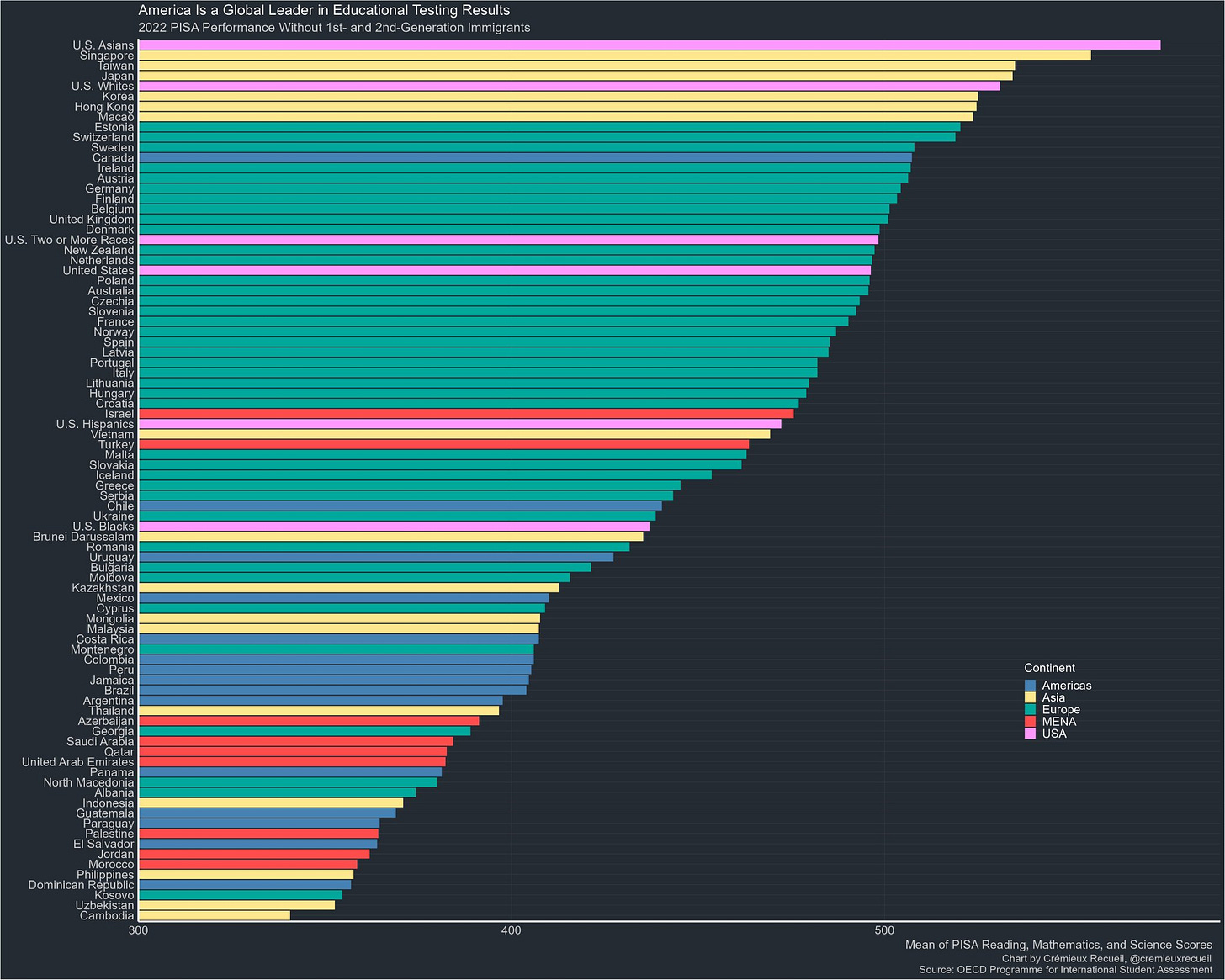
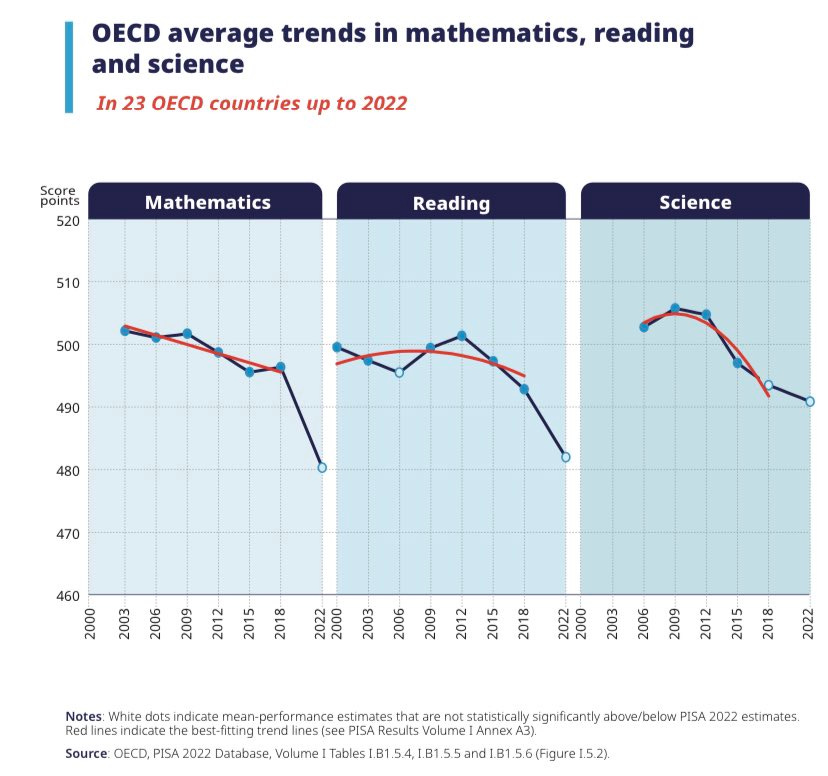
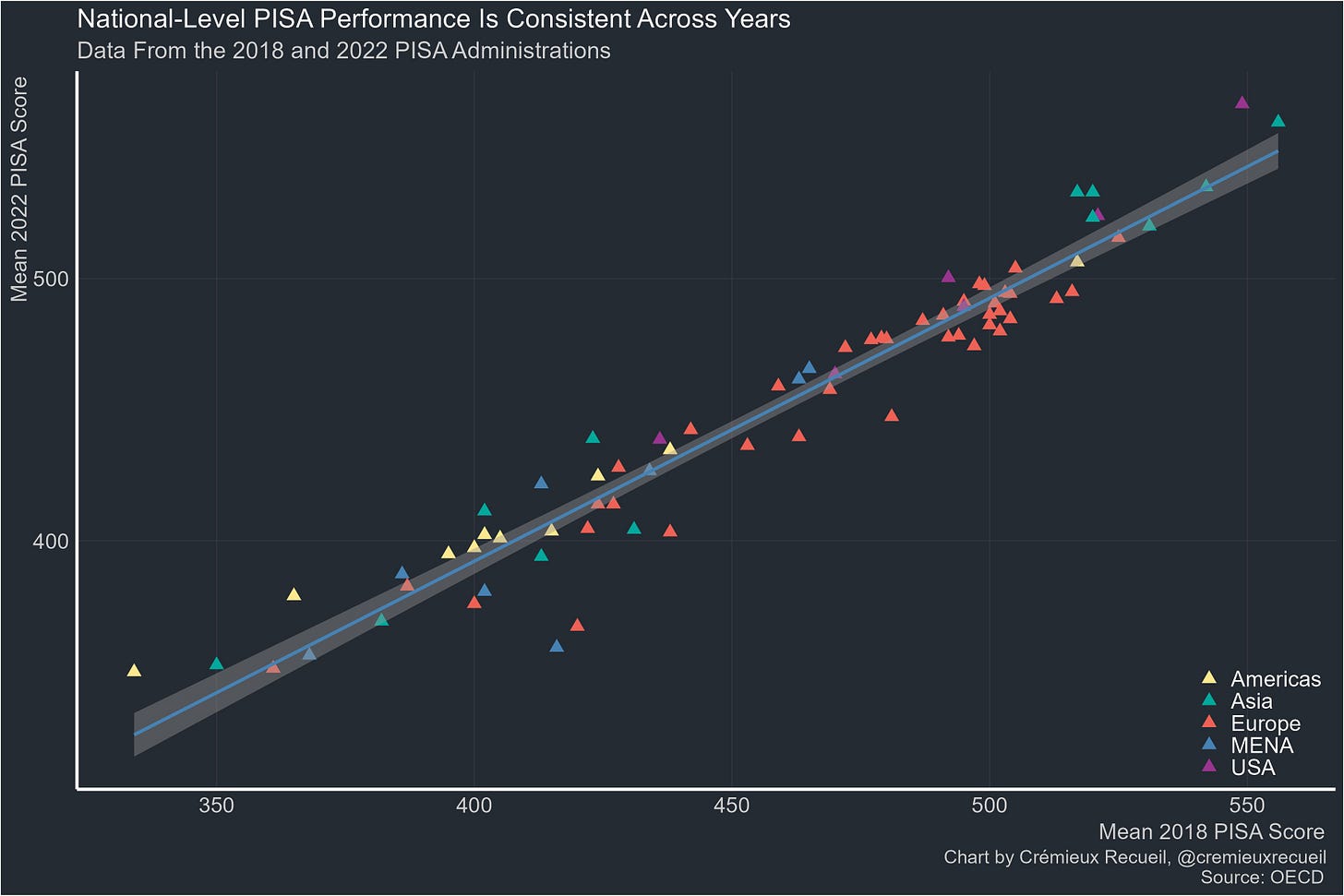
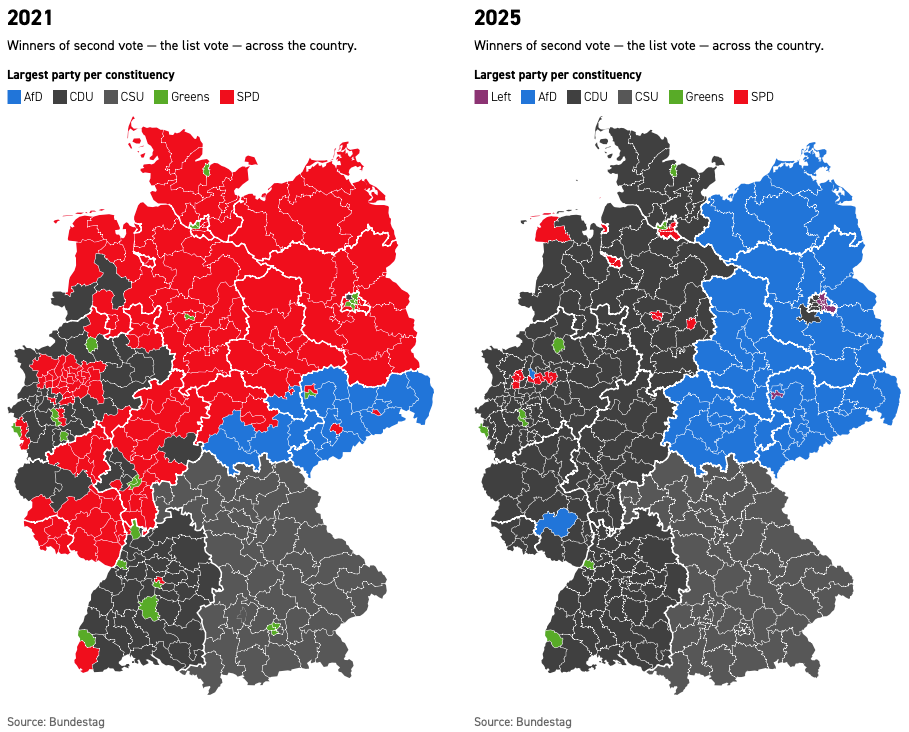

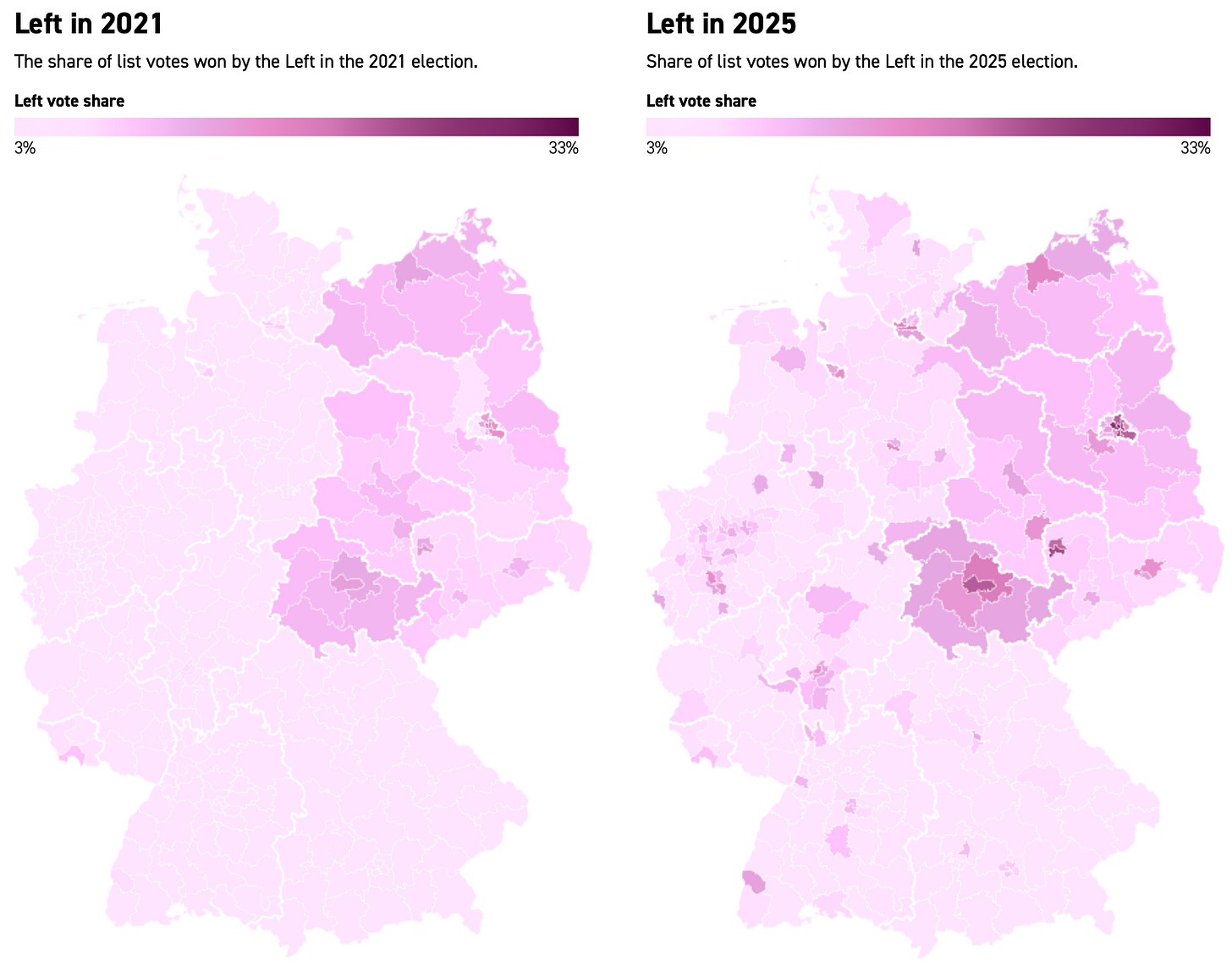


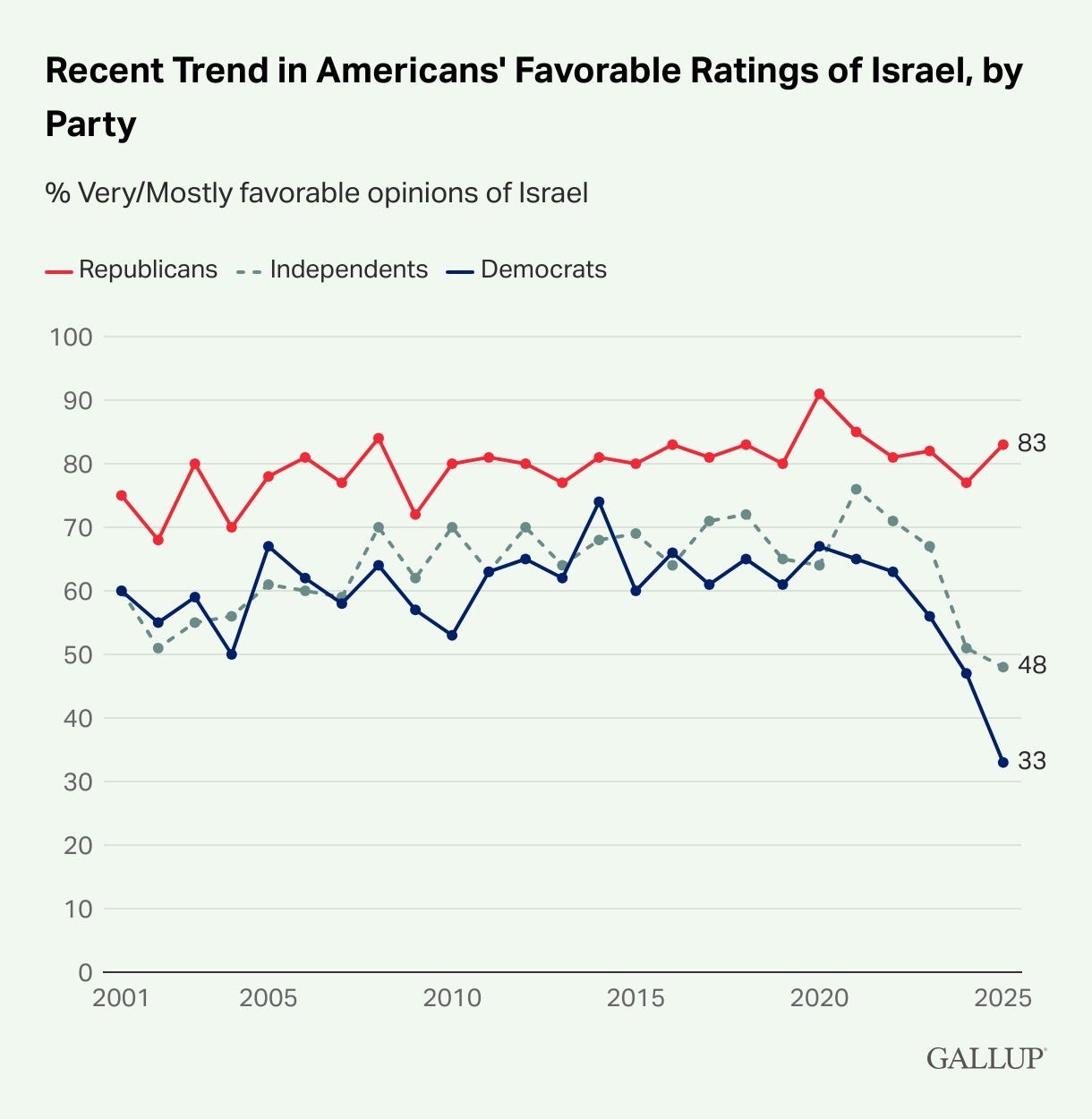
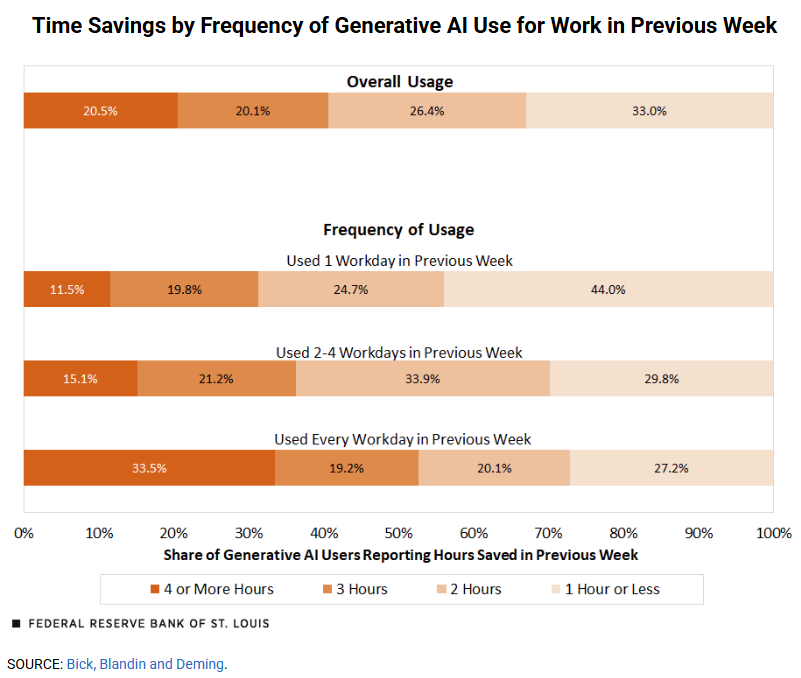


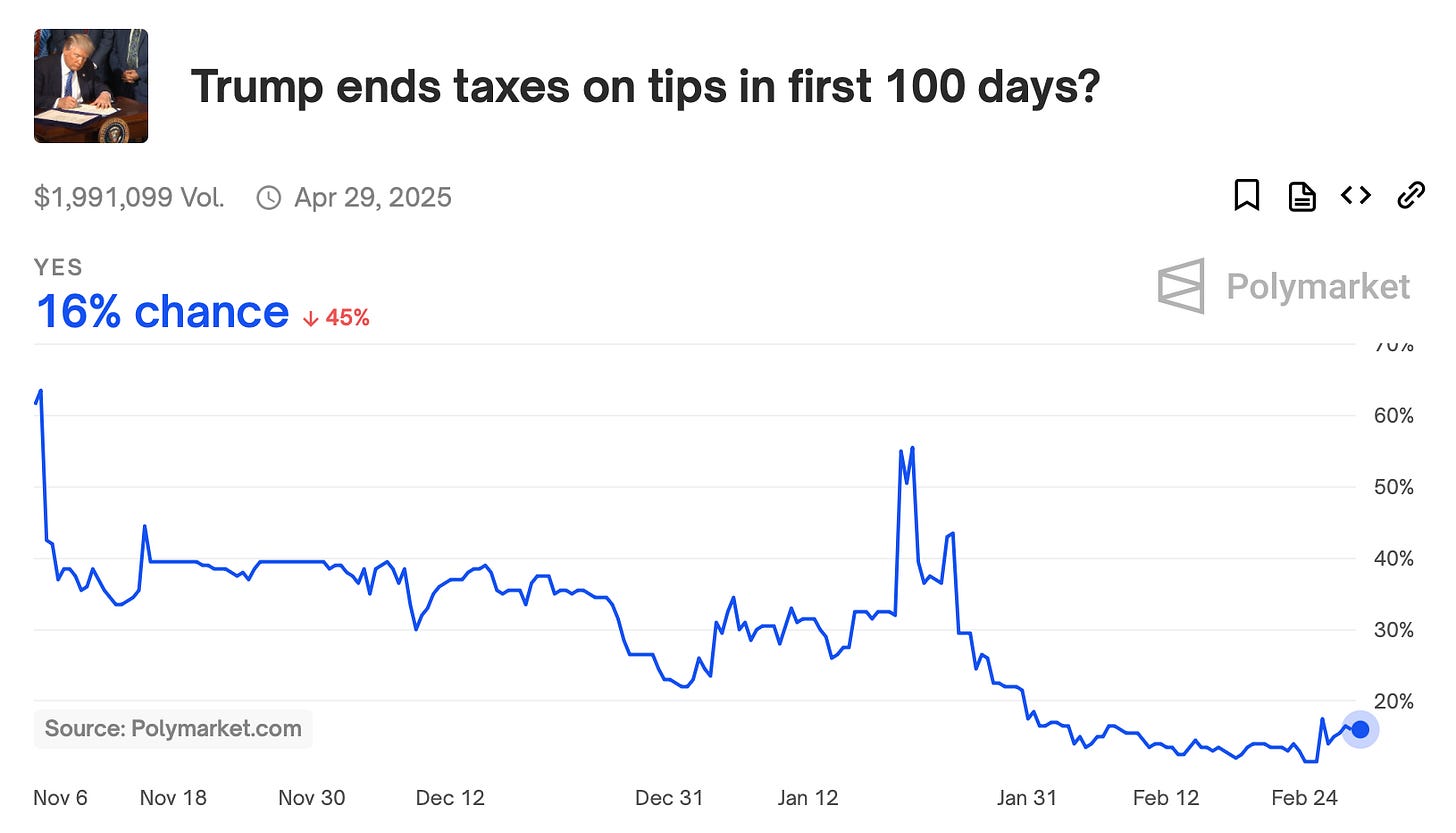
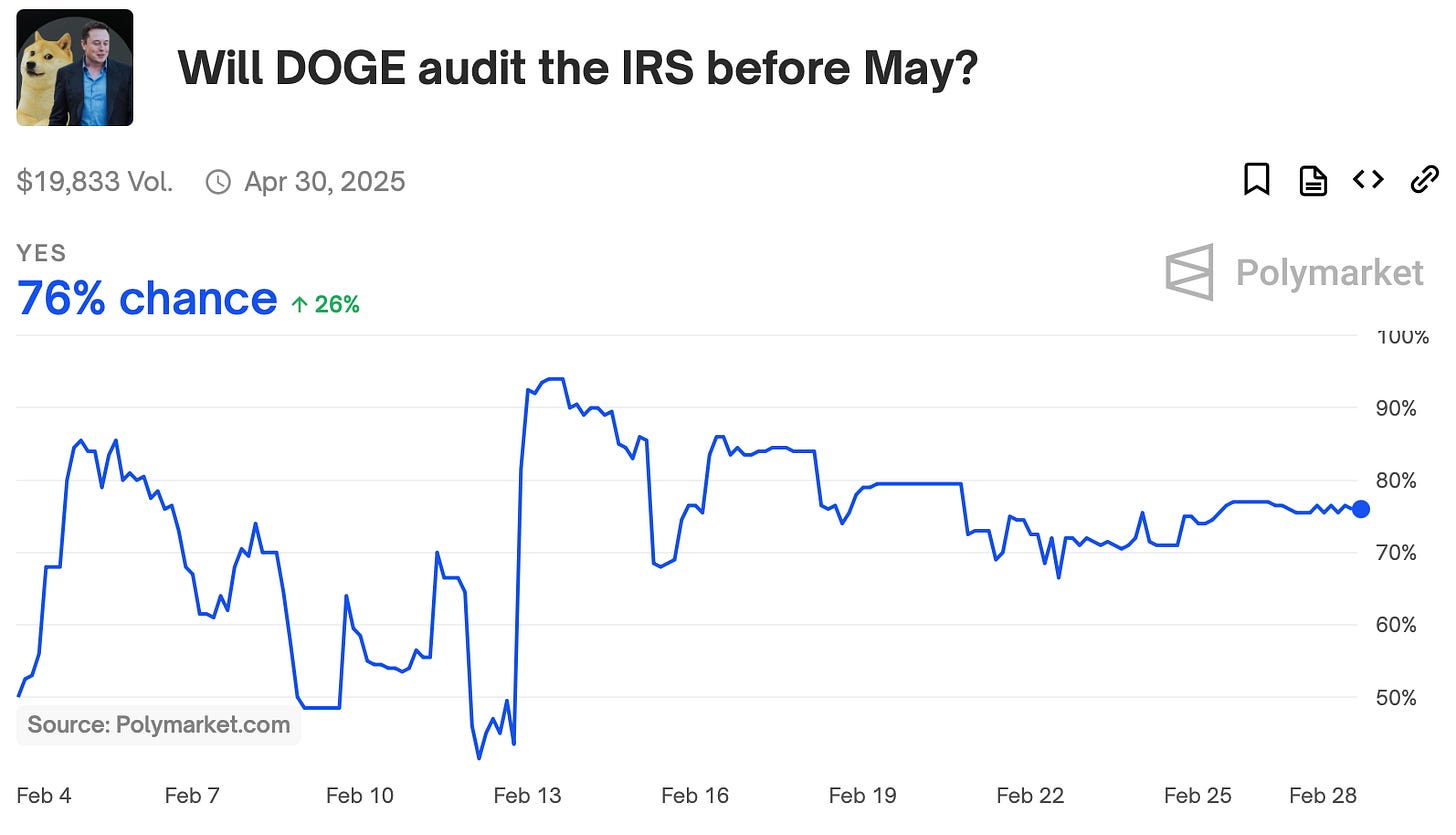
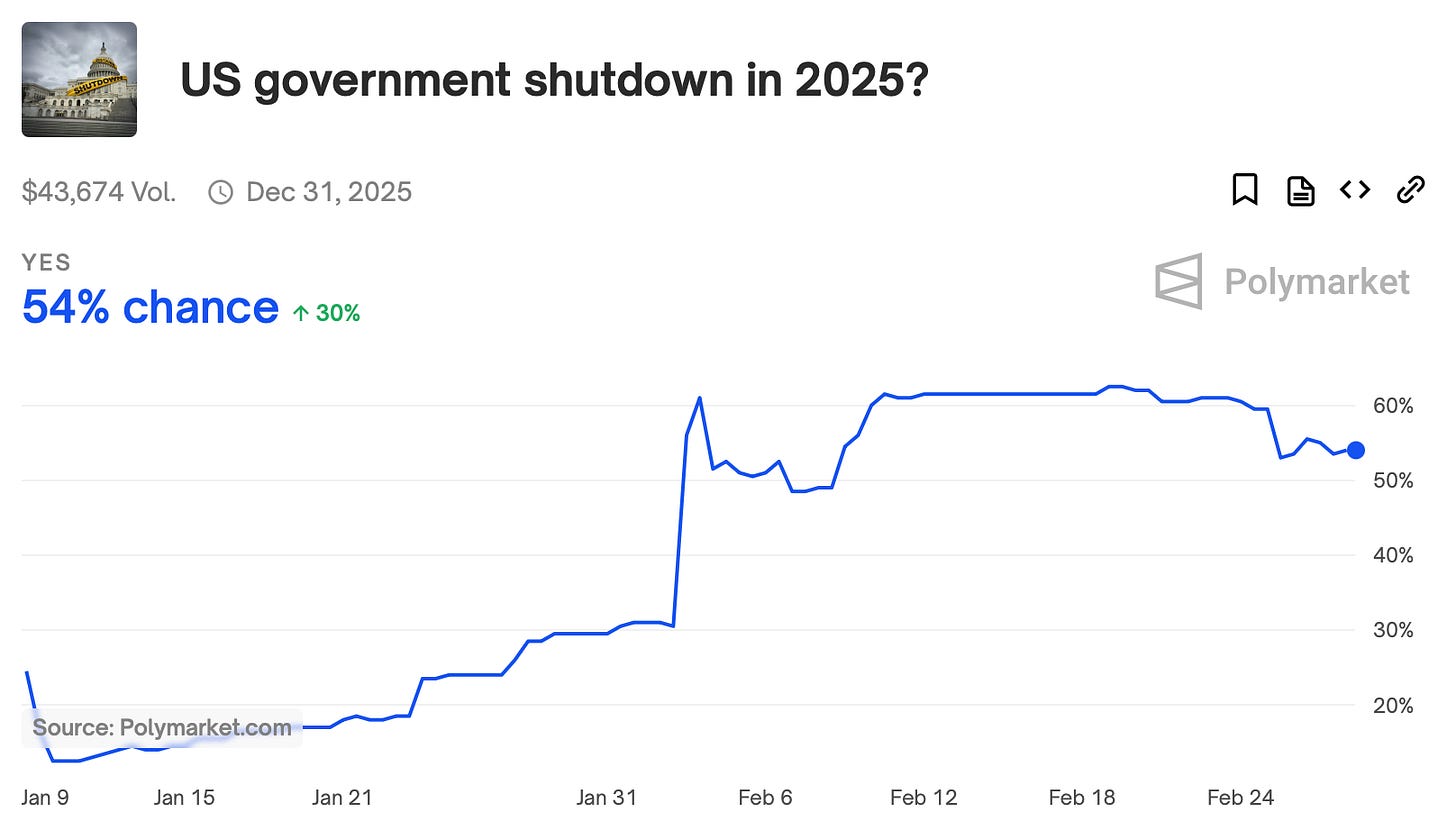

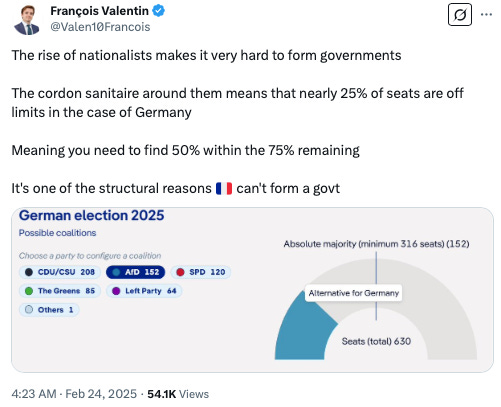




Diverging views on Israel: Israel or the present Israeli government? Being pro Israel should push you against the present government.
Mending over ending? But if you think that, you're a conservative or a Democrat.